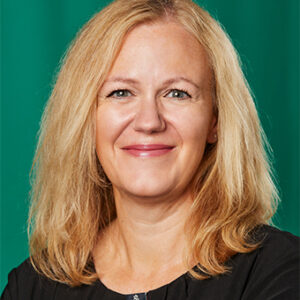Intelligent Step Towards Energy Transition
Research project SynergieQuartier successfully completed
Research focus: Climate Action Innovation
Developing innovations for a safe, cost-effective energy system design – this was the goal of the SynergieQuartier project under the direction of the FZI Research Center for Information Technology. Together with the partners Stadtwerke Walldorf, beegy GmbH, the energy supply company MVV, and the Karlsruhe Institute of Technology (KIT), the FZI developed a system concept that was investigated, demonstrated, and evaluated in simulations and a field test in a residential area in Walldorf. Through the intelligent use of ICT, the system concept will allow a targeted expansion of the grids in the future – even despite additional loads.
The SynergieQuartier project ran from mid-2020 to the end of 2023 and was funded by the Federal Ministry for Economic Affairs and Climate Action with around 2 million euros. It focused on developing a system concept that incorporates all key players and technologies on the path to the energy transition.
Decentralized consumers and producers such as electric vehicles, heat pumps, various energy storage systems, and photovoltaic systems can put a heavy load on the grids. Until now, however, it has been uncertain to what extent the respective distribution grids need to be expanded and how the flexibility of households can instead help save grid expansion costs and thus contribute to a stable and cost-efficient energy system. These questions were investigated in the SynergieQuartier project, a follow-up project to Living Lab Walldorf, both in general and in concrete terms, using households in Walldorf’s electricity grid as a reference.
Based on the Smart Meter Gateway architecture, possibilities were developed at a local level to design time and load-depending, variable grid charges such that not only the supra-regional electricity market situation but also the local grid situation was considered at the same time – even if the situations varied supra-regionally and locally.
Field test in Walldorf residential area
The project’s core was a practical field test running between January 2022 and October 2023. During this test, a total of 28 prosumer households in Walldorf – households that not only consume energy but also generate it – were equipped with appropriate metering and control technology in the form of a local energy management system (HEMS) by beegy GmbH and an intelligent metering system. From the collected metering data, the charging behavior of private households was first modeled, and – using this as a basis –, the effects of prosumer households on distribution grids and grid operator interventions were simulated.
By holding events and discussion rounds, residents of the neighborhood in Walldorf were actively involved in the design of the field test. They were asked, in particular, about their energy behavior and their demands on an energy management system, with the aim of increasing flexibility and optimizing the grid.
Prosumer demonstrator visualizes reactions of the energy management system
As part of the project, a demonstrator visualizing the reactions in the energy management system was created in the FZI Living Lab smartEnergy. This “Prosumer Household” demonstrator was also shown to visitors of the Federal Government’s 2023 Digital Summit in Jena, Germany, as part of the trade fair presentation by the Mittelstand-Digital Zentrum Klima.Neutral.Digital (SME Digital Center Climate.Neutral.Digital).
The demonstrator reflects all the components of a prosumer household (a photovoltaic inverter, a charging station, a battery, and an intelligent metering system with a smart meter) on a wall surface. Additional monitors allow the integration of the household into the energy system to be tracked.
The demonstrator displayed three network areas of the smart meter gateway: the home network contains a solar inverter with a battery and a charging station communicating with a local energy management system (HEMS). Via the energy management system, the energy flows in the building can be tracked on a monitor. Smart meters are connected to the central Smart Meter Gateway via their local meter network. On top of that, the Smart Meter Gateway receives information about the energy system via the Internet, including dynamic electricity prices and power limits resulting from bottlenecks in the local grid.
Besides a live scenario, the demonstrator can also be used to select and simulate different seasons and scenarios in the energy system to observe the reactions of the energy management system and the resulting change in energy flows.
Secure and resilient energy system
In the project, the FZI not only looked at communication and optimization processes for the installed systems but also investigated the obstacles and potentials of the smart meter infrastructure, which is to be expanded extensively in Germany by 2035. The project focused, in particular, on IT security aspects relating to smart meters in the laboratory and field environment and developed approaches for making the critical power supply infrastructure more resilient to potential cyberattacks.
FZI input for the continued development of the Energy Industry Act
Through the results of the SynergieQuartier project, the FZI researchers were also able to provide valuable input for the further development of the regulatory framework for our energy system to the Federal Network Agency and the Forum Network Technology/Network Operation Forum in the VDE (German Association for Electrical, Electronic & Information Technologies), particularly concerning the new version of Section 14a of the Energy Industry Act. As a result of this update, grid operators have had the right to control charging stations, heat pumps, and batteries in the event of grid congestion since January 1, 2024. In return, the operators of new systems will receive reduced grid charges.
Goal of the SynergieQuartier achieved
The intelligent use of ICT in the form of HEMS and smart metering systems allows the grids to be expanded and operated more targeted and cost-efficiently in the light of additional loads due to electromobility and sector coupling. Energy service providers can offer end customers product innovations and cost reductions, legislators receive valid recommendations for action, and the general public can participate effectively in the energy transition.
About the FZI
The FZI Research Center for Information Technology, with headquarters in Karlsruhe and a branch office in Berlin, is a non-profit institution for information technology application research and technology transfer. It delivers the latest scientific findings in information technology to companies and public institutions and qualifies individuals for academic and business careers or the leap into self-employment. Supervised by professors from various faculties, the research groups at the FZI develop interdisciplinary concepts, software, hardware, and system solutions for their clients and implement the solutions found as prototypes. The FZI House of Living Labs provides a unique research environment for application research. The FZI is an innovation partner of the Karlsruhe Institute of Technology (KIT) and strategic partner of the German Informatics Society (GI).



Press contact
Valérie Hasler
Division Manager Communications
- +49 721 9654-345
- presse@fzi.de
- Headquarters Karlsruhe
Download press release (pdf):
Media donwload:
Please click to download media.
More downloads & links:
